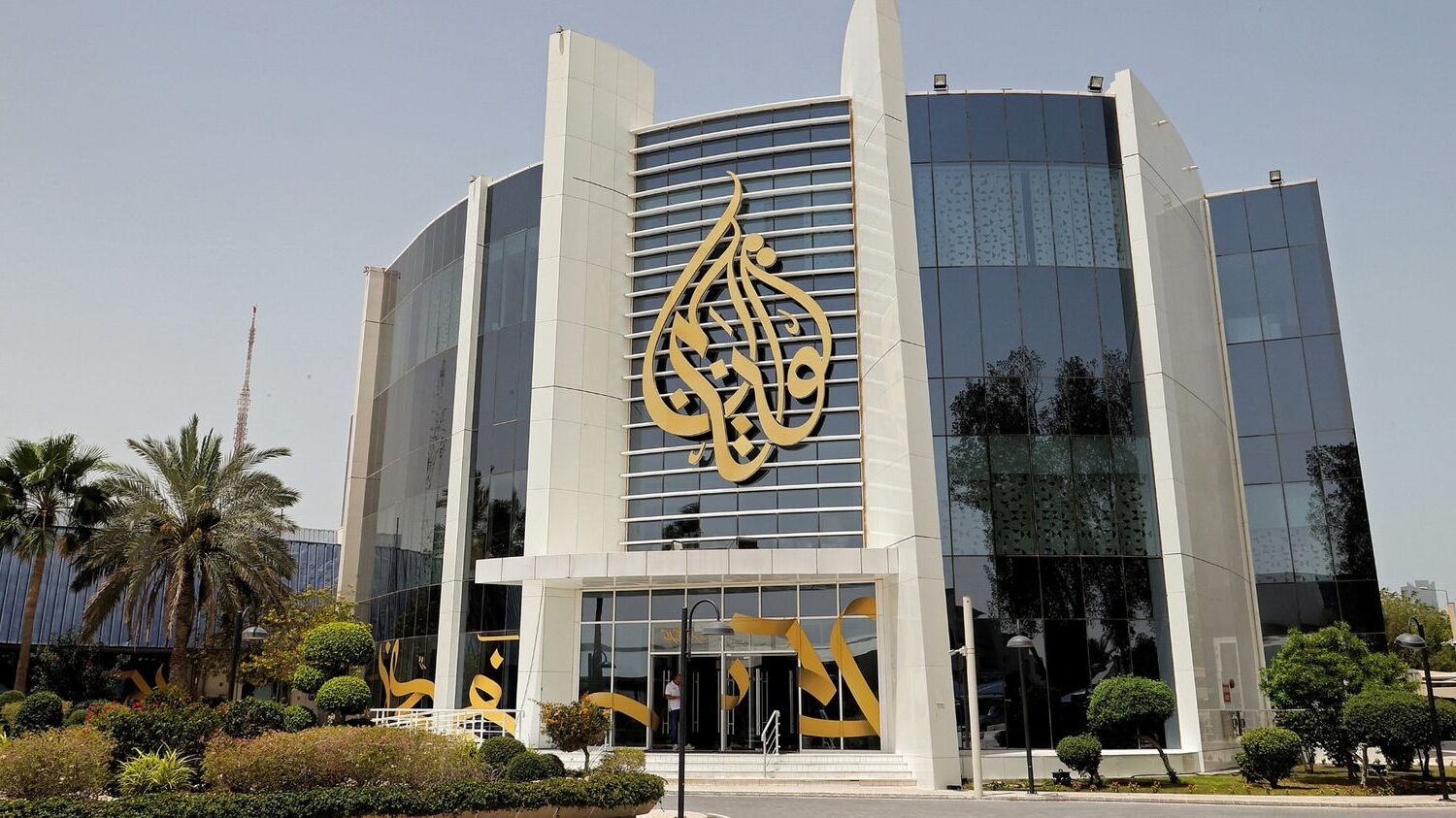
What makes Al Jazeera one of the most influential news networks globally? Founded in 1996, Al Jazeera has grown from a small Arabic-language satellite channel into a global media powerhouse. With its headquarters in Doha, Qatar, the network broadcasts in over 150 countries, reaching millions. Known for its in-depth coverage of conflict zones and investigative journalism, Al Jazeera offers a unique perspective often missing in Western media. Despite controversies over its funding and alleged biases, the network maintains a strong commitment to editorial independence. Its digital platforms, like AJ+, cater to younger audiences, ensuring Al Jazeera remains relevant in today's fast-paced news environment.
Key Takeaways:
- Al Jazeera, a global news network, was founded in 1996 in Qatar. It reaches over 430 million people worldwide and operates 70 bureaus, providing comprehensive coverage of international events.
- Despite controversies and financial challenges, Al Jazeera continues to innovate and adapt, launching digital platforms, winning awards, and expanding its global reach. It remains a major player in shaping public opinion and influencing global events.
The Origins and Growth of Al Jazeera
Al Jazeera has become a significant player in global news, especially in the Middle East. Let's explore its beginnings and how it has grown over the years.
- Founding and Headquarters: Al Jazeera was founded on November 1, 1996, and is headquartered in Doha, Qatar. The network's name, "Al Jazeera," translates to "The Island" in Arabic.
- Funding: Al Jazeera is partially funded by the government of Qatar, which has led to disputes over its editorial independence. Despite these allegations, the network maintains that its reporting is not influenced by the Qatari government.
- Flagship Channels: The network's flagship channels include Al Jazeera Arabic and Al Jazeera English. These channels provide comprehensive coverage of regional and international news, along with analysis, documentaries, and talk shows.
- Global Reach: Al Jazeera broadcasts in over 150 countries and territories, reaching a global audience of over 430 million people.
- Bureaus: The network operates 70 bureaus around the world, making it one of the largest collections of bureaus among media companies globally.
Expanding Digital Presence
Al Jazeera has embraced digital platforms to reach a wider audience. Here’s how they’ve adapted to the digital age.
- Digital Presence: In addition to its television channels, Al Jazeera has expanded its digital presence with platforms like AJ+, which caters to younger audiences with formats and content tailored for online consumption.
- Launch of Al Jazeera English: Al Jazeera English was introduced in 2006 to broaden the network's reach to a global audience. It is the first global English-language news channel to be headquartered in the Middle East.
- Awards and Recognition: Al Jazeera English has won over 150 prizes, medals, and awards, including the Peabody Award for its coverage of the Arab Spring in 2011 and for documentaries like "Fault Lines: Haiti in a Time of Cholera" in 2016.
- Controversies and Criticisms: Despite its achievements, Al Jazeera has faced numerous controversies and criticisms. One of the most significant was during the Qatar diplomatic crisis in 2017, when several Arab countries severed diplomatic ties with Qatar and imposed a blockade, demanding the closure of Al Jazeera.
- Al Jazeera America: From 2013 to 2016, Al Jazeera operated Al Jazeera America, a U.S.-based news channel that provided both domestic and international news coverage for American audiences. The channel was headquartered in New York City with 12 bureaus in major cities around the country.
Challenges and Adaptations
Al Jazeera has faced numerous challenges but has adapted in various ways to maintain its influence.
- Closure of Al Jazeera America: Al Jazeera America ceased operations in 2016 due to financial difficulties and a decline in viewership. Despite this, Al Jazeera continues to offer groundbreaking journalism through its English-language website, live TV, social channels, and mobile app.
- Rightly Channel: In 2021, Al Jazeera launched Rightly, an online news channel aimed at center-right American conservatives. This move sparked questions about whether the channel would compromise Al Jazeera's mission to be non-partisan and whether conservative audiences would accept content from a network often targeted by American conservatives.
- Podcasting Network: Al Jazeera launched a podcasting network called Jetty in 2017, later renamed Al Jazeera Podcasts. The network offers a variety of podcasts, including "Closer Than They Appear," "The Game of Our Lives," "Freedom Stories," "The Virgie Show," and "Movement".
- Online News Websites: Al Jazeera operates several online news websites, including Aljazeera.com for English-language properties, Aljazeera.net for Arabic-language properties, and Aljazeera.tr for Turkish properties.
- Mandarin-Language Website: In 2018, Al Jazeera launched a Mandarin-language news website, becoming the first Middle Eastern news provider to target the Chinese audience. The staff engages with their audience via Chinese social media platforms like Weibo, Meipai, and WeChat.
Controversies and Legal Battles
Al Jazeera has not been without its share of controversies and legal challenges.
- Suspension from Israel: On May 4, 2024, the Israeli government shut down Al Jazeera in Israel and authorized the seizure of its equipment, citing national security concerns. This move was part of a new law giving the prime minister and communications minister the authority to order the temporary closure of foreign networks operating in the country.
- Media Freedom Concerns: The suspension of Al Jazeera in Israel has raised significant concerns about media freedom. Media freedom groups have warned that this move is an attempt to censor coverage of the war in Gaza and other sensitive topics.
- Historical Context: Al Jazeera emerged during a period of significant media expansion in the Arab world. The growth of satellite television and affordable receivers transformed the way Arabs consumed news, creating a unified media market across state boundaries.
- Impact on Arab Media Landscape: Al Jazeera's influence on the Arab media landscape is profound. It has been a major player in shaping public opinion and has been credited with contributing to the Arab Spring uprisings through its in-depth and frontline reporting.
- Viewership Among Arab-Israelis: A significant portion of Arab-Israelis identify Al Jazeera as their primary source of news. This preference is robust across sectarian divides, with Muslims being particularly inclined towards Al Jazeera over Israeli TV.
Financial Backing and Editorial Independence
The financial structure and editorial independence of Al Jazeera have been subjects of debate.
- Sponsorship and Funding: Al Jazeera's success is largely attributed to the billions of dollars in resources committed by the Qatari rulers over the past decade and a half. This funding has enabled the network to provide timely and extensive information, which is expensive to produce.
- Consumer Aspirations: Al Jazeera understands the media market and its consumers well. It caters to viewers who want a station that reflects their core identity and positions on central issues, while also providing timely and extensive information.
- Political Aims of Sponsors: The political aims of Al Jazeera's sponsors, particularly the Qatari government, play a crucial role in its operations. Despite allegations of editorial control, Al Jazeera maintains that its reporting is independent and not influenced by the government.
- Editorial Independence: The network's commitment to editorial independence is a subject of ongoing debate. While it claims to maintain its independence, critics argue that the funding from the Qatari government could compromise this principle.
- Coverage of Conflict Zones: Al Jazeera is known for its in-depth coverage of conflict zones, including the Arab Spring, the Gaza–Israel conflict, and other significant global events. This coverage has earned the network numerous awards and accolades.
Unique Reporting Style
Al Jazeera has carved out a unique niche in the media world with its distinctive reporting style.
- Narrative Reporting: Al Jazeera positions itself as an alternative media platform to the dominance of Western media outlets like CNN and BBC. It focuses on narrative reporting where subjects present their own stories, providing a unique perspective on global events.
- Employment Freeze: In mid-2014, Al Jazeera English froze employment of both permanent and freelance staff for its Qatar network and cut freelance pay rates by 30-40% without warning. This move was part of a broader financial restructuring effort.
- Claims Against Egypt: Al Jazeera lodged a $150 million claim for compensation against Egypt, arguing that by arresting and attacking its journalists, seizing its property, and jamming its signal, the Egyptian government had violated its rights as a foreign investor in the country.
- Legal Battles: The network has been involved in several legal battles over the years, including disputes with Egypt and other countries regarding journalistic freedoms and property rights. These battles reflect the complex geopolitical landscape in which Al Jazeera operates.
- Media Criticism: Despite its achievements, Al Jazeera has faced intense media criticism. Some critics argue that the network's coverage is biased or that it promotes a particular political agenda. However, the network maintains that its reporting is fair and balanced.
Public Perception and Influence
Al Jazeera's influence extends beyond just news reporting; it shapes public opinion and regional politics.
- Public Perception: Al Jazeera's public perception varies widely depending on the region and audience. In some areas, it is seen as a trusted source of news, while in others, it is viewed with skepticism or even hostility.
- Sectarian Preferences: The network's coverage is often preferred by Muslims over other sectarian groups in the Arab world. This preference is evident in polling data that shows a significant majority of Arab-Israelis identifying Al Jazeera as their primary source of news.
- Historical Significance: Al Jazeera's emergence in the late 1990s marked a significant shift in the Arab media landscape. It provided a platform for voices that were previously marginalized or suppressed by state-controlled media outlets.
- Impact on Regional Politics: The network's coverage has had a profound impact on regional politics. Its reporting has influenced public opinion and has been credited with contributing to the Arab Spring uprisings, which transformed the political landscape of several Arab countries.
- Journalistic Standards: Al Jazeera is known for its high journalistic standards, particularly in conflict zones. The network's correspondents often risk their lives to bring forth critical information that might otherwise remain unreported.
Documentaries and Investigative Journalism
Al Jazeera excels in producing award-winning documentaries and investigative reports.
- Documentary Series: The network's documentary series, such as "Fault Lines," have won numerous awards for their in-depth coverage of global issues. These documentaries often explore complex themes like human rights, economic inequality, and social justice.
- Investigative Journalism: Al Jazeera has a strong tradition of investigative journalism, which has led to several high-profile exposés. The network's investigative reporting has exposed corruption, human rights abuses, and other forms of malfeasance around the world.
- Digital Innovation: Al Jazeera has been at the forefront of digital innovation in the media industry. Its online platforms, such as AJ+, offer a unique blend of news, analysis, and entertainment tailored for the digital age.
- Social Media Engagement: The network actively engages with its audience on social media platforms like Twitter, Facebook, and Instagram. This engagement helps to build a community around the network and fosters a sense of connection with its viewers.
- Cultural Sensitivity: Al Jazeera is known for its cultural sensitivity, particularly in its coverage of the Middle East and North Africa. The network employs correspondents who are fluent in local languages and understand the cultural nuances of the regions they cover.
Language Diversity and Global Perspective
Al Jazeera's multilingual approach allows it to reach diverse audiences worldwide.
- Language Diversity: The network offers content in multiple languages, including Arabic, English, Turkish, and Mandarin. This diversity allows Al Jazeera to reach a broader audience and cater to different linguistic and cultural preferences.
- Regional Focus: Al Jazeera maintains a strong regional focus, particularly on the Middle East and North Africa. The network provides comprehensive coverage of regional events, including conflicts, elections, and social movements.
- Global Perspective: Despite its regional focus, Al Jazeera also offers a global perspective on news events. The network's correspondents are stationed around the world, providing real-time coverage of international events as they unfold.
- Awards and Recognition: The network has received numerous awards and recognition for its journalism. These accolades include the Peabody Award, the Royal Television Society Award, and the Agence France-Presse's Kate Webb Prize.
- Controversies Over Funding: The funding model of Al Jazeera has been a subject of controversy. Critics argue that the network's dependence on Qatari funding compromises its editorial independence. However, the network maintains that it operates independently and makes its own editorial decisions.
Staff and Operations
Al Jazeera's extensive network of staff and bureaus ensures comprehensive news coverage.
- Public Funding Debate: The debate over public funding for Al Jazeera reflects broader discussions about media ownership and control. While some argue that public funding ensures editorial independence, others contend that it creates conflicts of interest and compromises journalistic integrity.
- Editorial Independence: The network's commitment to editorial independence is a cornerstone of its operations. Despite allegations of government interference, Al Jazeera maintains that it operates independently and makes its own editorial decisions.
- Staff and Operations: Al Jazeera employs a diverse team of journalists, correspondents, and support staff from around the world. The network operates 70 bureaus globally, ensuring comprehensive coverage of international events.
- Impact on Journalism: Al Jazeera has had a significant impact on the journalism industry. Its innovative reporting styles and commitment to in-depth coverage have raised the bar for other news organizations. The network's influence can be seen in the way many other media outlets now approach their reporting.
- Legacy and Future: As Al Jazeera continues to evolve, it remains a major player in the global media landscape. Its legacy is marked by its commitment to journalistic excellence, cultural sensitivity, and regional focus. As the media landscape continues to shift, Al Jazeera is poised to remain a significant force in shaping public opinion and influencing global events.
Al Jazeera's Lasting Impact
Al Jazeera has become a major player in global media since its founding in 1996. With its headquarters in Doha, Qatar, and a global reach spanning over 150 countries, the network has reshaped how news is consumed, especially in the Middle East. Its flagship channels, Al Jazeera Arabic and Al Jazeera English, offer comprehensive coverage of both regional and international events. Despite facing controversies and criticisms, the network's commitment to journalistic excellence and editorial independence remains strong. Al Jazeera's innovative digital platforms and award-winning journalism have set new standards in the industry. As it continues to evolve, Al Jazeera's influence on public opinion and global events shows no signs of waning. The network's legacy is marked by its dedication to providing a platform for diverse voices and its impact on the media landscape.
Frequently Asked Questions
Was this page helpful?
Our commitment to delivering trustworthy and engaging content is at the heart of what we do. Each fact on our site is contributed by real users like you, bringing a wealth of diverse insights and information. To ensure the highest standards of accuracy and reliability, our dedicated editors meticulously review each submission. This process guarantees that the facts we share are not only fascinating but also credible. Trust in our commitment to quality and authenticity as you explore and learn with us.


